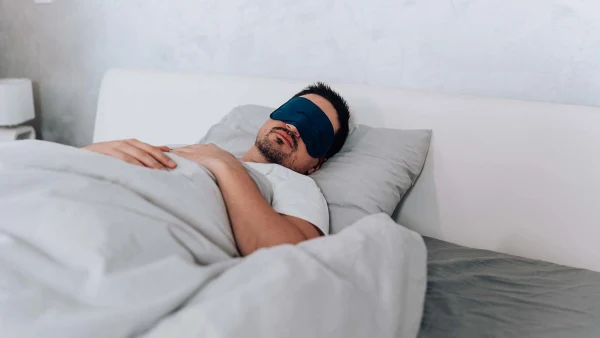
1. Avoid accumulating a sleep debt
Writing in the journal Trends in Neurosciences, University of Pennsylvania researchers tried to synthesize conclusions from decades of research on sleep deprivation and sleep debts.
They reached three conclusions:
Accumulating a sleep debt led to “deficits … in vigilance and episodic memory,” that persisted even after subjects attempted to make up for a short night’s sleep by sleeping longer on subsequent days.
People are unreliable witnesses when you ask them if they’ve slept enough. One of the first things to go when you accumulate a sleep debt is your objective perception of just how you’re affected by the lack of sleep.
Finally, and the biggest issue for the long-term: Persistent sleep debts, even when subjects attempted to make up for them, were associated with “heightened susceptibility to neurodegenerative disorders, including Alzheimer’s disease … and Parkinson’s disease.”
2. Wear an eye mask when you sleep
Researchers in Italy, Wales, and the United States teamed up to run two experiments involving 122 human participants. Then they wrote about their findings in the journal Sleep.
In one experiment, they compared the experiences of people who wore eye masks at night with those who did not. They found that those who wore masks demonstrated better episodic memory and alertness, and sustained attention, than those without masks.
In the second experiment, they had participants wear eye masks for two nights — and then follow up by wearing eye masks with holes cut out to allow light. (This was intended to account for any discomfort they might have had from wearing masks to begin with.)
In short, the ones wearing real masks (without the holes cut out) did better on cognitive tests, even though they said they didn’t feel as if they’d slept better.
3. Sleep on your side
Writing in the peer-reviewed journal Translational Neurodegeneration, Australian researchers set out to study devastating motor neuron diseases like ALS, also known as Lou Gehrig’s disease.
Their experiments involved mice, and an attempt to determine whether problems with the glymphatic system, which is what removes waste materials from the brain, might be associated with the onset of this kind of disease.
So, they studied this by feeding the mice food that had been genetically modified to include a human protein often seen in ALS patients, and then also giving some of the mice antibiotics that counteracted the protein.
Mice whose glymphatic systems had been unable to remove the protein were more likely to show “classical signs of ALS including progressive muscle impairments and brain atrophy.”
The researchers also cited other behaviors likely to increase glymphatic clearance from previous research, among them: sleeping on your side.
“The reasons for this are not yet fully understood,” study author, David Wright wrote in a popular article that accompanied the research, “but possibly relates to the effects of gravity, compression and stretching of tissue.”










